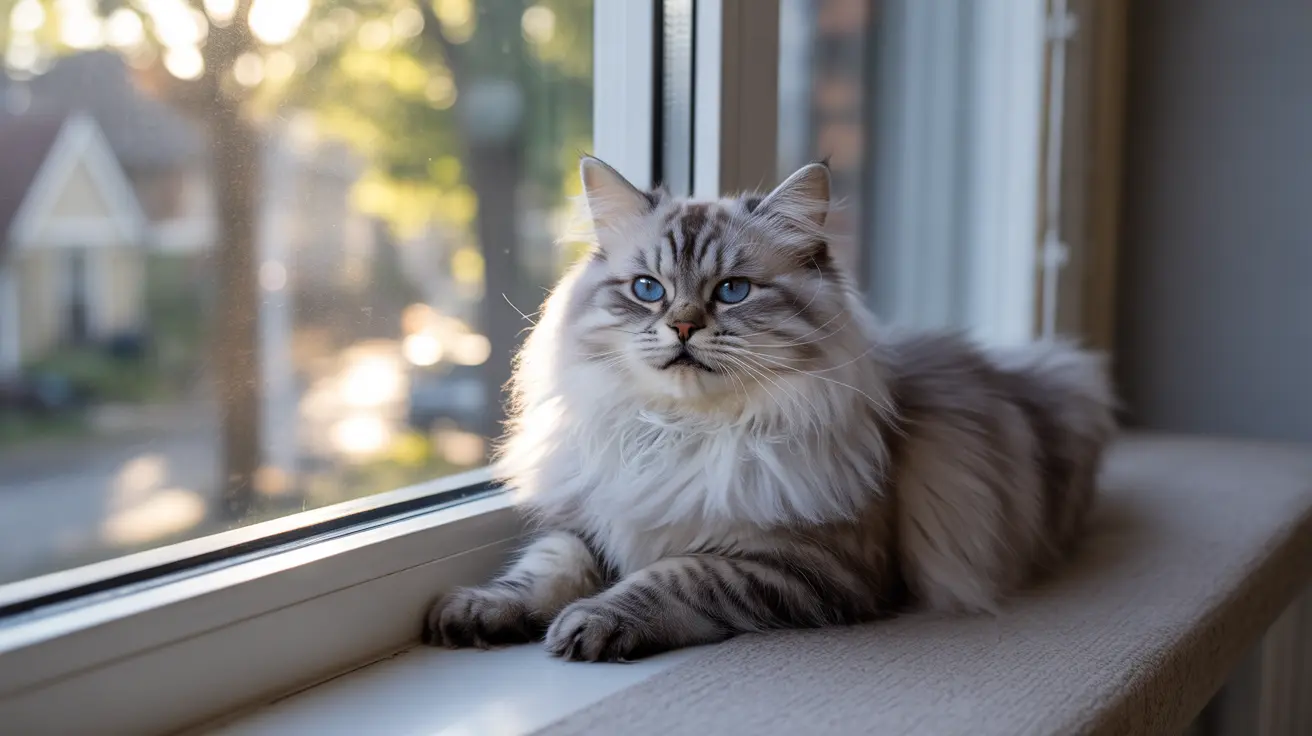If you've noticed your cat making unusual honking or quacking sounds while coughing, you're not alone. A cat coughing that sounds like a duck can be alarming for pet owners and often signals an underlying respiratory issue that requires attention. Understanding the causes, symptoms, and treatment options is crucial for ensuring your feline friend's health and well-being.
This comprehensive guide will explore why cats develop duck-like coughs, what health conditions might be responsible, and when you should seek veterinary care for your pet.
Common Causes of Duck-Like Coughing in Cats
Feline Asthma
Asthma is one of the most frequent causes of duck-like coughing in cats. This condition affects approximately 1% of the feline population and occurs when airways become inflamed and constricted. Environmental triggers such as dust, pollen, or smoke often spark asthmatic episodes, resulting in distinctive honking sounds during coughing fits.
Respiratory Infections
Viral, bacterial, or fungal infections can cause inflammation in the respiratory tract, leading to unusual coughing sounds. These infections often come with additional symptoms like fever, nasal discharge, and decreased appetite.
Upper Airway Obstruction
Foreign objects, tumors, or anatomical abnormalities can partially block the airways, creating the characteristic duck-like sound during coughing. Even small grass blades or hairballs can trigger this distinctive cough.
Recognizing Serious Symptoms
Warning Signs
Watch for these critical indicators that your cat needs immediate veterinary attention:
- Difficulty breathing or rapid breathing
- Blue or gray-tinged gums
- Persistent or worsening cough
- Loss of appetite
- Lethargy or weakness
- Open-mouth breathing
Diagnostic Process
Your veterinarian will likely perform several tests to determine the cause of your cat's duck-like cough, including:
- Physical examination
- Chest X-rays
- Blood tests
- Bronchoscopy (if needed)
- Airway sampling
Treatment Options and Management
Treatment varies depending on the underlying cause but may include:
- Bronchodilators for asthma
- Antibiotics for bacterial infections
- Anti-inflammatory medications
- Environmental modifications
- Regular monitoring and follow-up care
Prevention and Long-term Care
To help prevent respiratory issues that cause duck-like coughing:
- Maintain a clean, dust-free environment
- Use unscented cat litter
- Avoid exposure to smoke and strong chemicals
- Keep up with regular veterinary check-ups
- Monitor for early signs of respiratory distress
Frequently Asked Questions
Why does my cat's cough sound like a duck or honking noise?
A duck-like or honking cough typically occurs when there's inflammation or obstruction in your cat's airways, most commonly due to asthma, respiratory infections, or physical blockages. The sound results from air trying to move through narrowed or irritated airways.
What health problems can cause a "duck-like" cough in cats?
Several health issues can cause this type of cough, including feline asthma, respiratory infections, tracheal tumors, foreign objects in the airways, and sometimes heart disease. Each condition requires different treatment approaches.
How can I tell if my cat's coughing is due to asthma or something more serious like a tumor?
While both conditions can cause similar sounds, asthma typically comes with triggers and may improve with environmental changes. Tumors usually cause progressive worsening of symptoms. Only a veterinarian can make an accurate diagnosis through proper examination and testing.
When should I take my cat to the vet for coughing that sounds like a duck honk?
Seek immediate veterinary care if the cough is persistent, accompanied by breathing difficulties, or if your cat shows signs of distress. Any new or unusual cough that lasts more than a day warrants professional evaluation.
What treatments are available for cats with a persistent honking cough caused by respiratory issues?
Treatment options include bronchodilators, anti-inflammatory medications, antibiotics (if bacterial infection is present), and environmental modifications. The specific treatment plan depends on the underlying cause identified by your veterinarian.
Conclusion
A cat coughing that sounds like a duck is often a sign of respiratory distress that requires attention. While some causes may be relatively minor, others can be serious or life-threatening. Early recognition and prompt veterinary care are essential for the best possible outcome. Always monitor your cat's symptoms closely and don't hesitate to seek professional help when needed.






